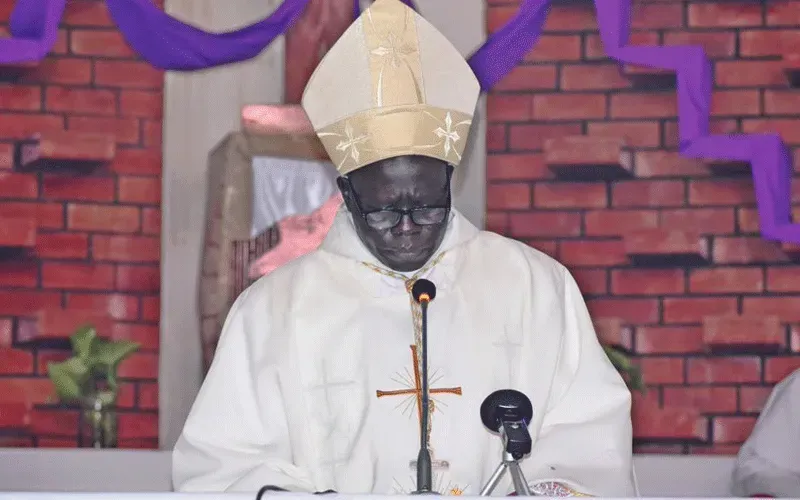Juba, 25 June, 2022 / 5:30 pm (ACI Africa).
The Catholic Archbishop of Juba in South Sudan has urged politicians in the East African nation to avoid causing divisions among citizens amid reported conflicts at camps for the Internally Displaced Persons (IDPs) in Juba.
In an interview with ACI Africa, Archbishop Stephen Ameyu Mulla Martin said political leaders are free to visit people in their communities but not to incite them violence.
“No one should divide our people along political lines; our people must be united. Politicians should come to our communities but they should not divide the people,” Archbishop Ameyu said during the June 18 interview.
He added, “I will always send the message of oneness, unity and peace among our people; our people must not be divided because we have one faith and one baptism and we are united by God the only Father”.
The South Sudanese Archbishop who was responding to the question of political division among IDPs at the United Nation Protection of Civilians (POC) camps in Juba said he is planning to visit the site where the Holy Father was previously scheduled to visit to pray and share the word of God with the IDPs before the ecumenical trip was postponed.








